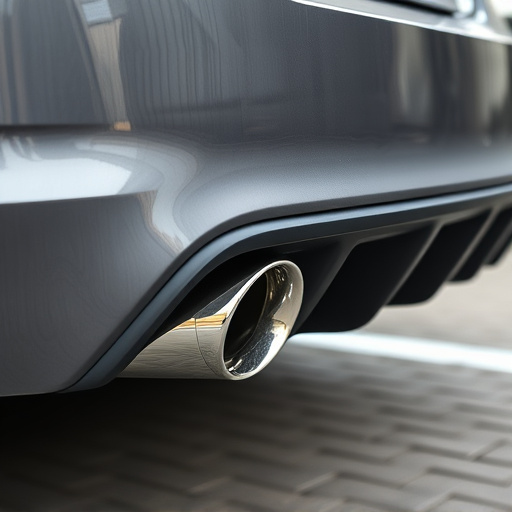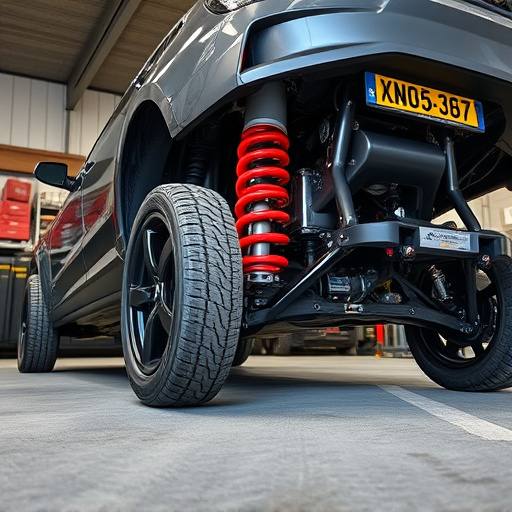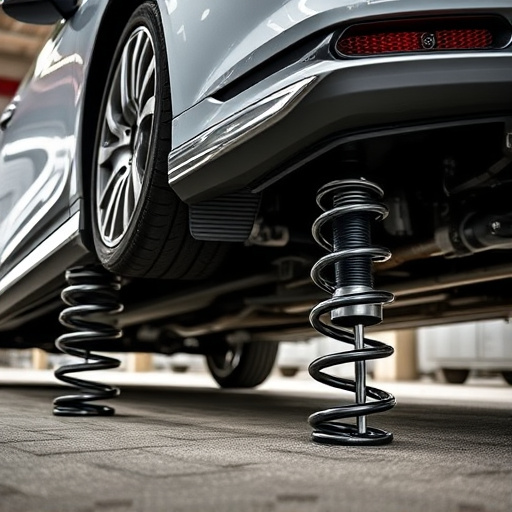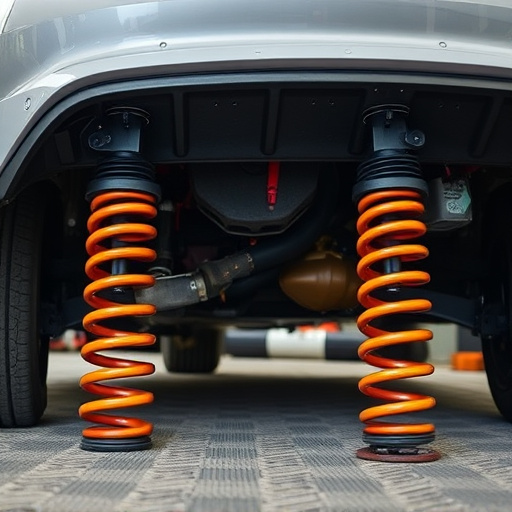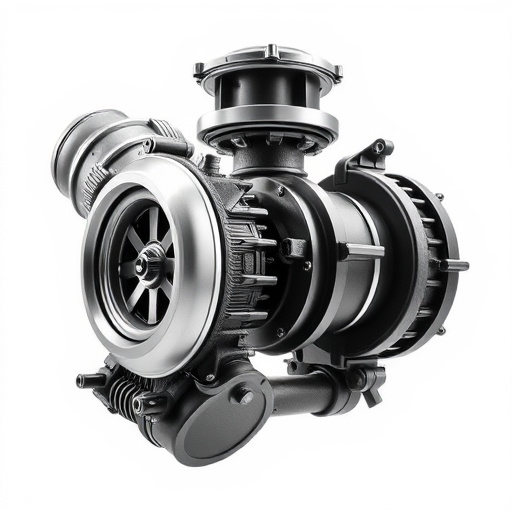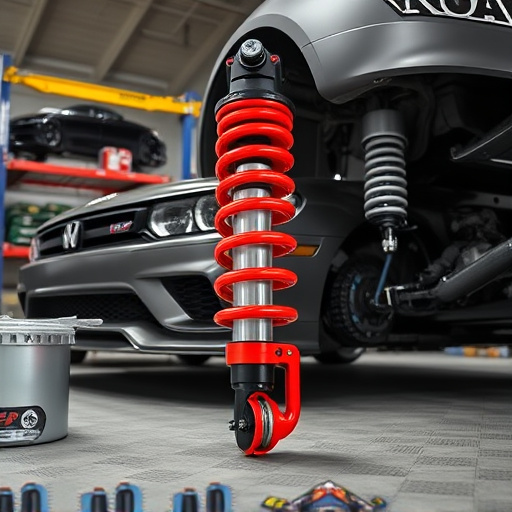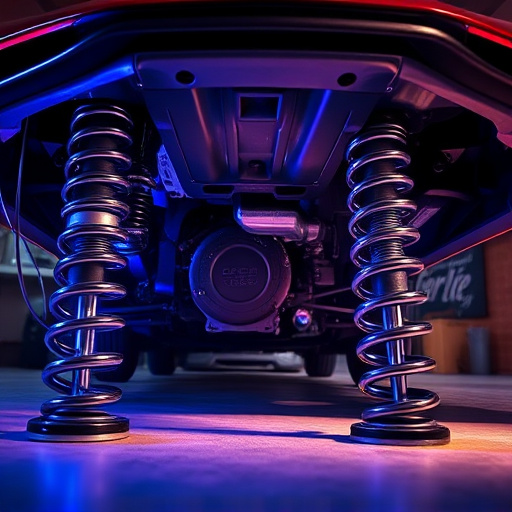Engine tuning enhances vehicle performance by optimizing components like fuel injection, ignition timing, air intake, and exhaust systems. Benefits include increased horsepower, torque, throttle response, improved drivability, and better fuel economy. Modern electronics provide precise data for adjustments, ensuring peak engine performance while maintaining reliability. The process involves specialized tools and mechanical expertise to modify intake/exhaust systems, suspension kits, and performance exhaust for maximum driving experience.
Engine tuning is a powerful tool for enhancing vehicle performance. By optimizing various components, from fuel injection to spark timing, tuners can unlock hidden potential, improving horsepower, torque, and overall driving experience. This article explores the fundamentals of engine tuning, delving into its benefits, essential techniques, and the tools required to achieve peak performance. Discover how fine-tuning your engine can revolutionize your drive.
- Understanding Engine Tuning: The Basics and Benefits
- How Engine Tuning Improves Performance
- Essential Tools and Techniques for Effective Engine Tuning
Understanding Engine Tuning: The Basics and Benefits
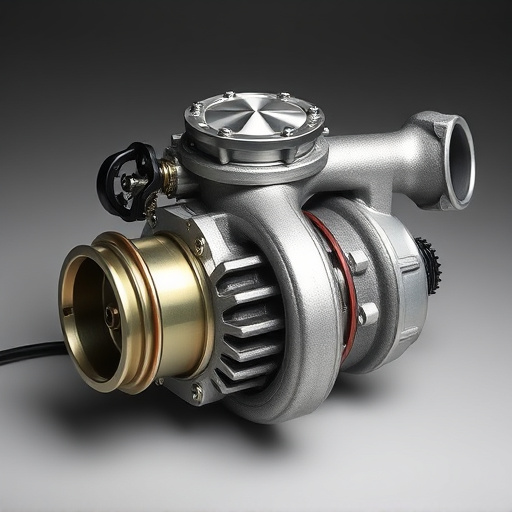
Engine tuning is a process that optimizes your vehicle’s engine for improved performance and efficiency. It involves adjusting various components and settings to ensure the engine runs at its peak capacity. This can include modifications to the fuel injection system, ignition timing, air intake, and even exhaust systems. By fine-tuning these elements, you can unlock hidden power and torque, resulting in enhanced vehicle performance.
The benefits of engine tuning are numerous. It not only boosts horsepower and torque but also improves throttle response and overall drivability. Additionally, a tuned engine can lead to better fuel economy, as optimizations in the combustion process reduce waste and optimize airflow. Modern vehicles, with their sophisticated electronics, offer a wealth of data that tuners can leverage to make precise adjustments, ensuring optimal performance while maintaining reliability. This is especially important for those seeking to maximize the potential of their high-performance exhaust mufflers and overall exhaust systems.
How Engine Tuning Improves Performance
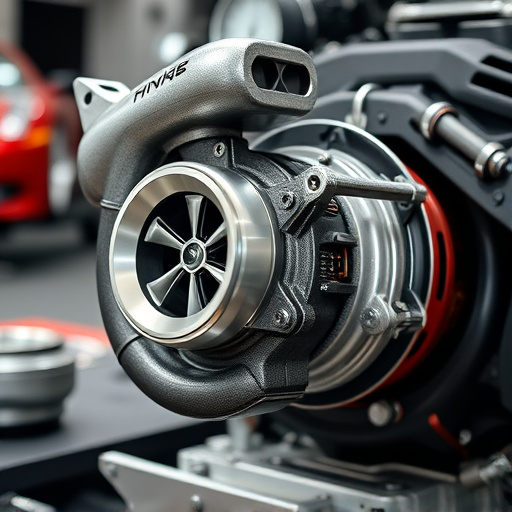
Engine tuning is a process that optimizes various components and systems within an engine to enhance its overall performance. By carefully adjusting settings such as fuel injection, ignition timing, and air-fuel mixture, tuners can unlock hidden power and torque from even the most stock engines. This meticulous adjustment ensures that the engine runs efficiently while delivering maximum output, translating into improved acceleration, faster top speeds, and a more responsive driving experience.
Moreover, engine tuning can significantly impact other performance aspects. For instance, it can lead to better throttle response, allowing drivers to effortlessly accelerate from low speeds. It may also result in enhanced fuel economy, as a tuned engine operates more efficiently. Additionally, upgrades like high-performance exhaust mufflers and coilover kits, often incorporated into the tuning process, can further enhance braking performance by improving heat dissipation and providing better control over wheel rotation, thus contributing to overall vehicle handling and safety.
Essential Tools and Techniques for Effective Engine Tuning
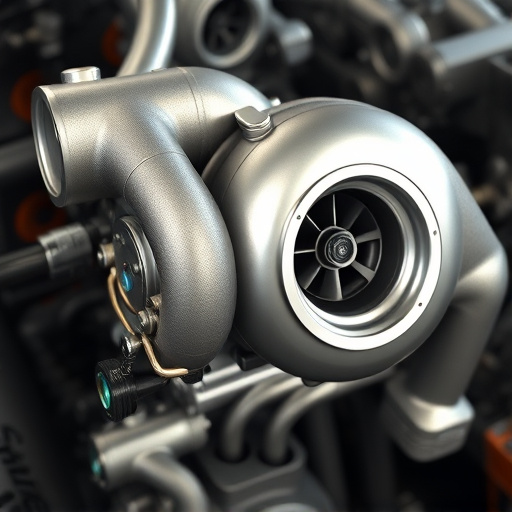
Effective engine tuning requires a combination of precise tools and techniques to uncover hidden performance potential. Key essential tools include specialized diagnostic scanners that allow for real-time monitoring of engine parameters, advanced data analysis software to interpret sensor readings, and precision calibration equipment for fine-tuning fuel injection and ignition timing. Additionally, mechanical tools like high-quality wrenches, torque keys, and specialty sockets ensure accurate adjustments during the tuning process.
Tuning techniques vary depending on the desired outcome, but often involve modifications to critical systems such as the intake and exhaust, suspension kits for improved handling, and performance exhaust to optimize gas flow. Tools like air/fuel ratio sensors, throttle position sensors, and camshaft position sensors are calibrated to ensure optimal fuel delivery and timing. For instance, installing a cat back exhaust system can enhance exhaust flow, while adjustments to suspension settings can significantly improve vehicle stability and cornering capabilities.
Engine tuning is not just about fine-tuning a car’s performance; it’s an art that unlocks the full potential of your vehicle. By understanding the fundamentals and employing effective tools, you can significantly enhance power, fuel efficiency, and overall driving experience. This article has provided insights into the basics, benefits, and techniques, empowering car enthusiasts to take control of their ride’s capabilities. Embrace the journey of engine tuning, where every adjustment brings a new level of performance and satisfaction on the road.
